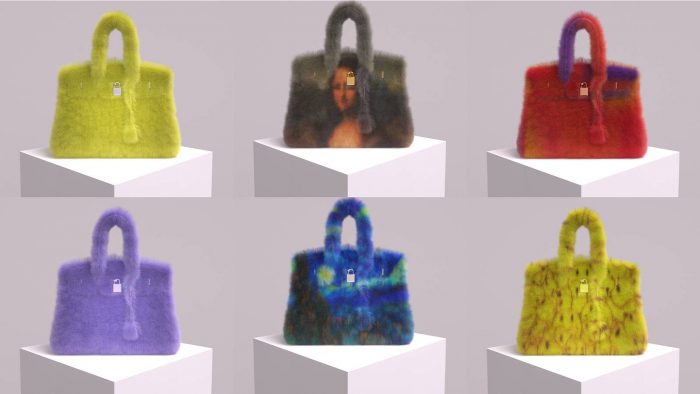In another decisive victory for Hermès, a Manhattan federal judge has issued a final injunction against the artist Mason Rothschild. The decision comes after a 2022 legal battle in which Hermès filed a lawsuit against Rothschild, accusing him of using their prized Birkin brand for his financial gain.
With this latest injunction, filed on June 23, the court permanently banned the further sale of Rothschild’s controversial MetaBirkin NFTs. This decision comes after Rothschild was ordered to pay $133,000 in damages in February 2023 after losing the first trademark case.
Rothschild vs. Hermes part two
Rothschild – who released its 100 MetaBirkins NFTs in December 2021 featuring images of fur-covered 3D patterned handbags – was charged in early 2022 by the French luxury house with unauthorized use of its revered Birkin trademark. The artist reportedly generated more than a million dollars in the sale of this project.
Judge Jed Rakoff, presiding over the case, alleged that Rothschild’s scheme misled consumers into falsely associating Hermès with the MetaBirkins NFTs, causing “significant damage” to the brand’s reputation. Rakoff rejected Rothschild’s appeal for First Amendment protection, stating that his fraudulent use of Hermès’ trademarks was beyond the scope of artistic license.

Following the ruling of the first trademark case, Hermès claimed in a March filing that Rothschild continued to promote and profit from MetaBirkins NFTs. The luxury goods maker wanted Rothschild to surrender his remaining tokens and the proceeds he collected after the trial. However, Judge Rakoff chose not to force Rothschild to relinquish its tokens, citing respect for First Amendment concerns.
However, in his most recent order, Judge Rakoff imposed a strict set of restrictions on Rothschild and his associates, barring them from marketing, selling and minting MetaBirkins NFTs and from any conduct that would create a false link between MetaBirkins and Hermès. can forge. The artist was also ordered to relinquish control of all domain names associated with the Hermès Birkin trademark on July 15, requiring the archiving of the primary website “MetaBirkins.com” by Hermès.
“The jury, applying the Court’s highly defensive interpretation of Rogers v. Grimaldi, found that Hermès had proved that Rothschild, by deliberately confusing consumers, was ineligible for any First Amendment protections under Rogers,” Rakoff wrote in his op-ed. “Thus, Rothschild’s use of Hermès’ trademarks does not qualify as First Amendment protected speech exempt from anti-dilution laws.”
While the regulation of crypto and NFTs is still evolving, this ruling highlights the emerging challenges brands in particular face in protecting intellectual property within the burgeoning Web3 space. The outcome could set a precedent for future cases involving the thin line between artistic expression and trademark infringement in the digital sphere.
Editor’s Note: This article was written by an nft now contributor in collaboration with OpenAI’s GPT-4.

